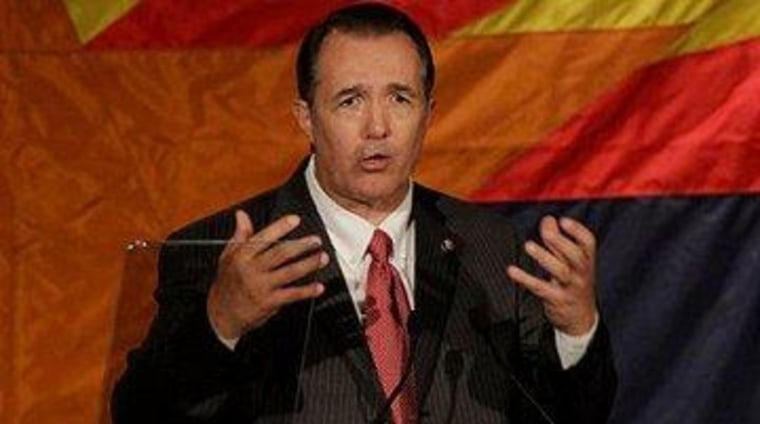This is certainly amusing on its own, but there's a larger significance beyond the story's point-and-laugh quality.
Nearly every single House Republican voted last week to increase government spending and push the nation further into debt -- all to limit abortion access for some women.The official budget scorekeeper of Congress says the Pain-Capable Unborn Child Protection Act, which would ban abortions after 20 weeks, would increase Medicaid costs by as much as $400 million.
We're referring, of course, to Rep. Trent Franks' (R-Ariz.) legislation, the most sweeping abortion restrictions considered in Congress in a decade, which passed the House two weeks ago on a 228-196 vote. Nearly every Democrat voted against it; nearly every Republican voted for it.
At the time, the debate followed a fairly predictable trajectory -- opponents noted it was an unconstitutional bill that Congress' shouldn't waste time on, especially since it can't pass the Senate or earn the president's signature, while supporters said the Republican Party's right-wing base is a beast that must occasionally be fed with pointless legislation.
But the CBO score adds an amusing twist: Franks' bill, thanks to its impact on Medicaid expenditures, would make the deficit bigger if it became law.
It's the bigger picture that I care about, however. There's an amazing phenomenon that's unfolded in recent years, in which nearly every Republican on Capitol Hill says their principal goal is deficit reduction. They say it's absolutely necessary to help America's children and to prevent an imaginary debt crisis.
It doesn't matter if the deficit is already shrinking; it doesn't matter if these cuts would make unemployment worse; it doesn't matter if these austerity measures would undermine economic growth. There's a list of GOP priorities, and this has been at the very top throughout the Obama era.
But that's not the amazing part. Rather, what's been interesting has been watching these same Republican policymakers reject Democratic policies that reduce the deficit the GOP pretends to care so much about, while pushing Republican policies that make the deficit worse.
Congressional Democrats said, "If we approve the Affordable Care Act, we can reduce the deficit by hundreds of billions of dollars." And Republicans said no.
Congressional Democrats said, "If we approve comprehensive immigration reform, we can reduce the deficit by hundreds of billions of dollars." And Republicans are in the process of saying no.
Congressional Democrats said, "If we approve a cap-and-trade system and the Dream Act, we can reduce the deficit by tens of billions of dollars." And Republicans said no.
Now, GOP lawmakers certainly had their own reasons to oppose all of these ideas -- including the ones they came up with -- that had nothing to do with the government's fiscal challenges. But therein lies the point: for all the talk about deficit reduction being their top priority, when confronted with bills that actually reduce the deficit, Republicans seem oddly disinterested.
Instead, they like bills like Trent Franks', which actually make the deficit bigger, not smaller.
